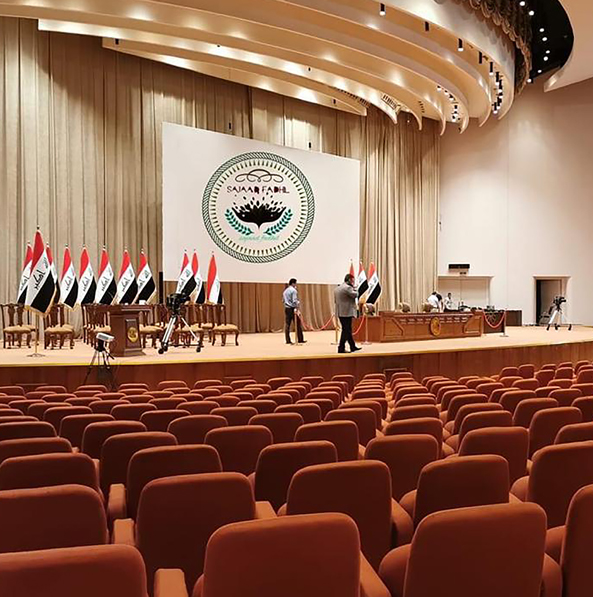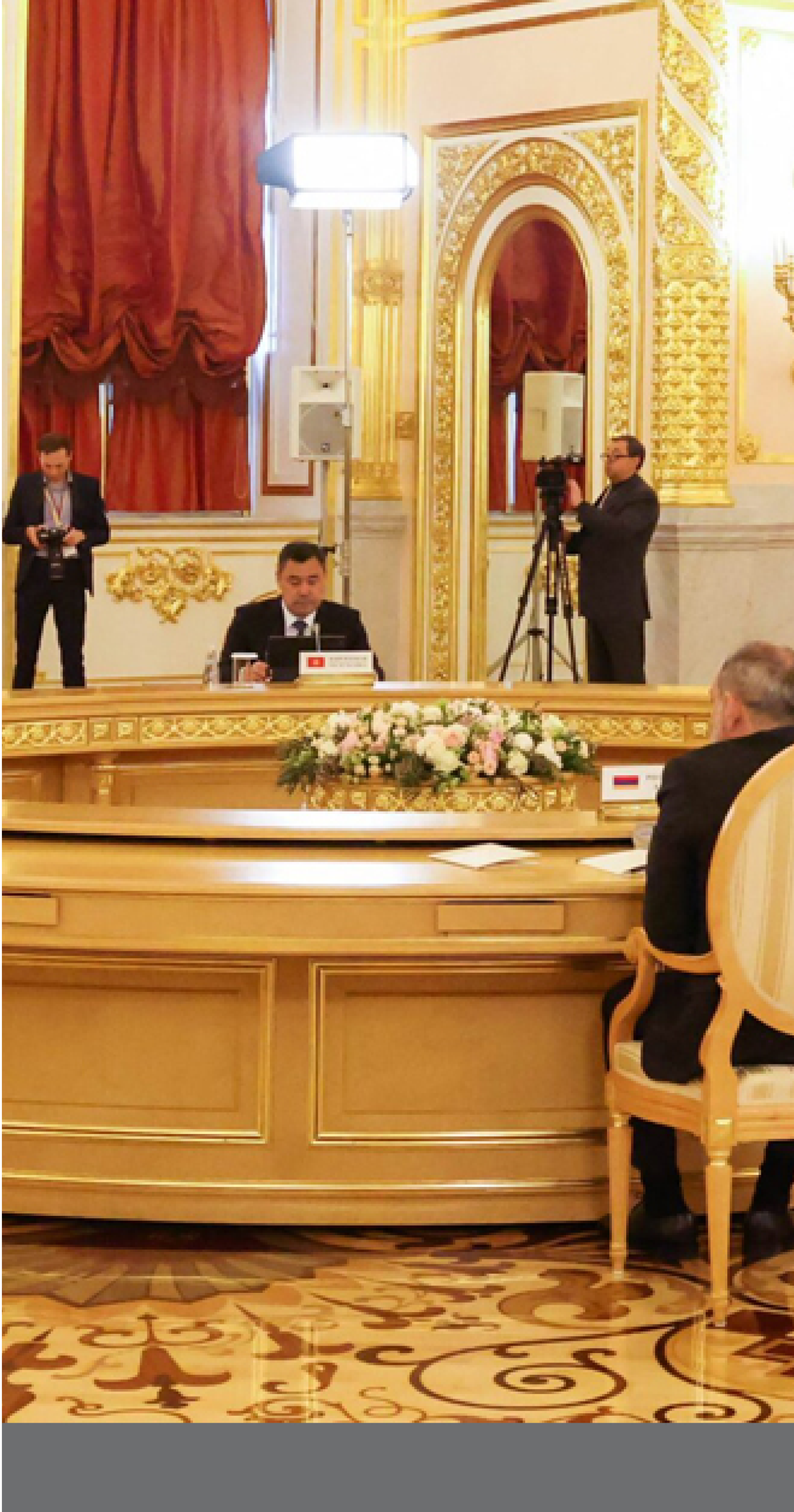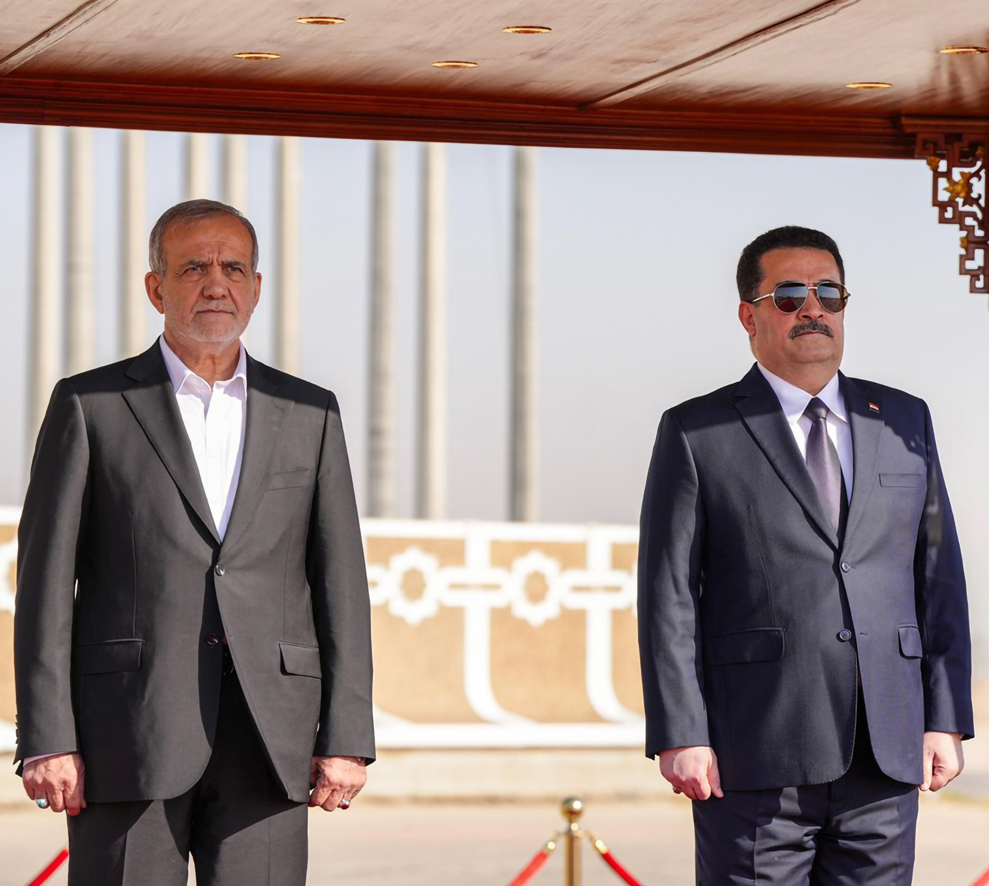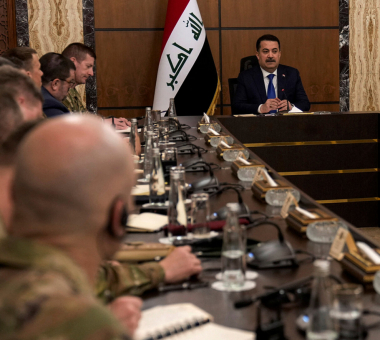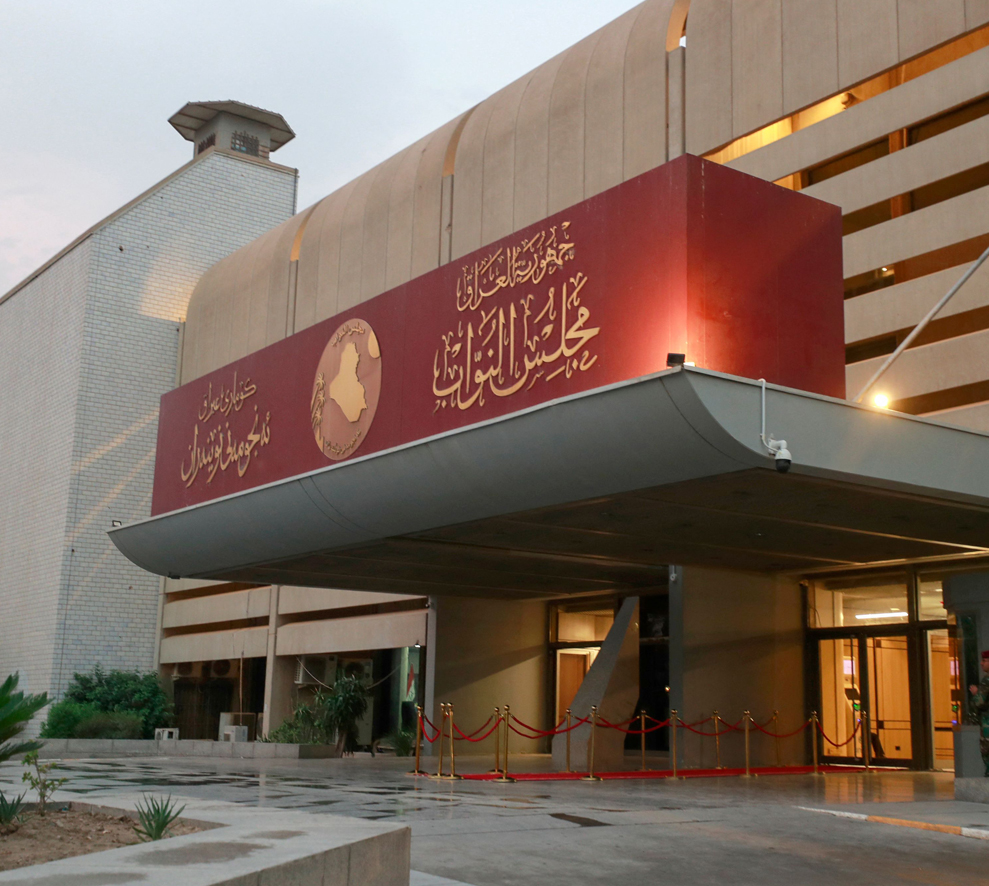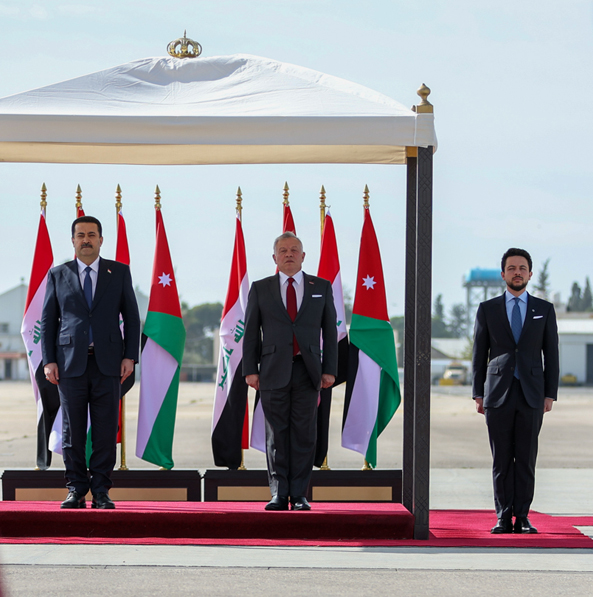The Sadrist movement, by its decision to withdraw from Parliament, surprised everyone in Iraq, including elites, politicians, and the masses, after 8 months of political deadlock and the failure of the parliamentary majority project advocated by the Sadrists and their allies.
It was not common in Iraq for the largest bloc to withdraw in parliamentary elections, as the Sadrist movement has 73 seats, approximately 22% of Parliament. Accordingly, this withdrawal opened the door to several scenarios that carry many ambiguous interpretations. One of these interpretations was that the withdrawal is a first step in calling for early elections, especially with the Sadrists’ alliance working with the “Sovereignty Alliance” and the “Kurdistan Democratic Party” (representing more than half of the Parliament members). Thus, the alliance can include other resignations, or transform the scenario of disruption, so the alliance itself would form a suspended third in Parliament for a government led by the coordination framework.
Accordingly, this paper reads the Iraqi scene after the resignation of the Sadrist movement's members, identifying its causes and merits, and trying to anticipate the next steps the Sadrist movement is preparing for.
Escape forward from forming a government
The political blockage in the country was not the only reason why the leader of the Sadrist movement, Muqtada al-Sadr, asked members to submit their resignations to the Speaker of the House of Representatives on June 11, 2022. There are many problems in Iraq, which burden any future government, and because of them, it is impossible for the parties of the crisis of forming the government to be alone in a government that faces popular demands to reform the current problems, which were not a challenge facing al-Sadr movement and their allies only. The coordination framework avoided starting forming the government after the withdrawal of the Sadrists, this was what emerged from the positions of some leaders within the framework, which stressed the need not to proceed with forming a government without the Sadrists, and these problems include:
1. The power outage coincided with severe heat waves, with no solution to it in the near future.
2. Environmental problems afflicting the world, and Iraq was one of those affected, such as dust waves and desertification accompanying the lack of rain water, and the low water level in the Tigris and Euphrates rivers due to problems related to the source (Turkey and Iran) and the absence of complete agreements regarding this file.
3. The return of the demand protests in several governorates, related to a number of groups, such as graduate degree holders, lecturers, contract holders, and the unemployed, and also that their problem cannot be resolved in the near time.
4. International issues related in one way or another to Iraq, the most important of which are the Ukrainian crisis, and the negotiations on the Iranian nuclear file.
5. The food crisis and supply chains associated with the Ukrainian war.
All of these problems and challenges make adopting the formation of the government at the present time a very dangerous matter, especially since the next government will be established after the popular demands (October 2019-2020) for early elections that adopt the two ideas of reform and addressing problems.
The Sadrist Movement's withdrawal data
The aforementioned data apply to the coordination framework as they are to the Sadr alliance. Even with the withdrawal of the Sadrist movement’s representatives from the Iraqi parliament, it is unlikely that the framework would start forming a government in light of the previous crises, and this may require three months at least, in which the country exceeds the severe heat waves amid a lack of other accompanying services.
Accordingly, al-Sadr's call for his representatives to resign appears to have been prepared for a long time, based on three facts imposed by the political arena, including:
First: The Sadrists maintain the caretaker government headed by Mustafa Al-Kazemi, in which they are considered the strongest party. This government has always been described by those close to the coordination framework as being a Sadrist government, and their justification for this is the subordination of the Secretary-General of the Council of Ministers to the Sadrist movement, a position that has the final say in important decisions for the country, as well as a number of important positions. This means that the Sadrists are an influential part in the current government, which allows them to exercise power regardless of their failure to form a “consensual” government, knowing that the adoption of the emergency support law - will be addressed later – will provide the current government with the necessary funding to carry out its work in full comfort.
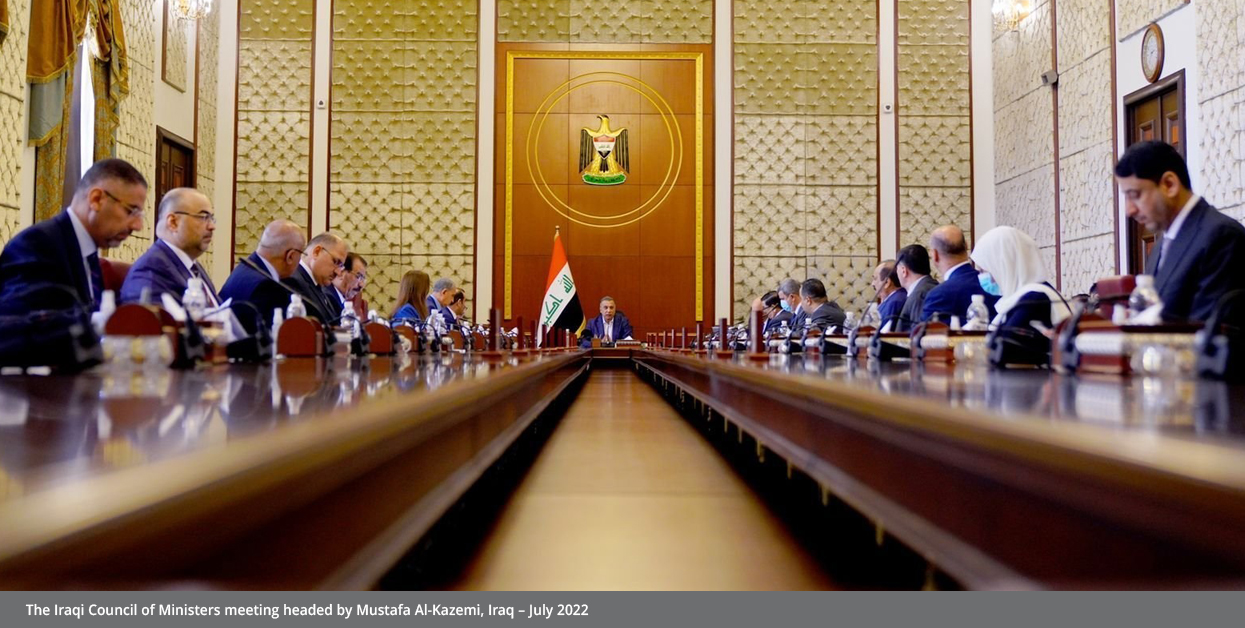
Second: The Sadrist movement is betting on the resignation of its members from Parliament, on the popular base it enjoys, as it is considered one of the forces capable of mobilizing the public in Iraq. The Sadrist movement’s public adheres to the concept of obedience, which supporters of its counterparts from other parties and forces lack.
Third: The withdrawal of the Sadrist movement’s representatives from Parliament does not nullify their ability to influence its work. After the coordination framework played the role of one-third blocking the formation of the government, by virtue of the Federal Court’s decision that two-thirds of parliament members must attend to vote on choosing the President of the Republic, the Sadrists, through their allies (Sovereignty and the Kurdistan Democratic Party) in the Council constitute the blocking third.
Post-withdrawal Sadrist Movement pathways
There was more serious talk of political opposition in the Parliament; after the sixth parliamentary phase in Iraq (2021), due to the presence of a significant number of independents and parties opposing the political approach based on quota.
It is no secret that the Sadrist movement is the strongest party in the political process, when it practices it in the style of popular opposition. They participated in many protests that Iraq witnessed in previous years, and what is remarkable is their ability to practice popular opposition even while they are part of Parliament and the government. The question here is about how they will practice the opposition after they gave up their representation in Parliament and failed to form their desired government.
It can be said that Al -Sadr can compensate for his majority loss in the House of Representatives, by relying on the street, after the failure of the government formation, which is the second method that enables it to gain the support of the public, and direct it according to the mechanism that he deems appropriate, through potential two tracks
The first track: confusing the parties in the government formation crisis
Al -Sadr deliberately resorted to this path, with the aim of confusing his political opponents and delaying the declaration of their positions on the resignation of his representatives, as their statements were limited to the diplomatic discourse keen on not anticipating events, fearing that al Sadr would resort to the second path represented by the mass movement, which if it happenes, it will become difficult to be absorbed by any government formation initiatives.
By applying this plan, the Sadrists eliminate any intuitive to agree on forming a government, after it is difficult for them to form a majority government, and at the same time impose restrictions on the coordination framework and their allies, preventing them from proceeding with forming the government in a smooth way, in light of their fear of angry public move that leads the political process to paths that cannot be expected or controlled.
The second track: drawing a future path to protest
The Sadrist movement can exercise the opposition, outside the House of Representatives within what some called "burning the stages". It seeks to establish a new approach of popular and political opposition, which cannot be linked to sabotage, or attached to external agendas, in a way that creates a new political culture, which differs in its concepts from those that were promoted during the reign of the previous regime (pre -2003)
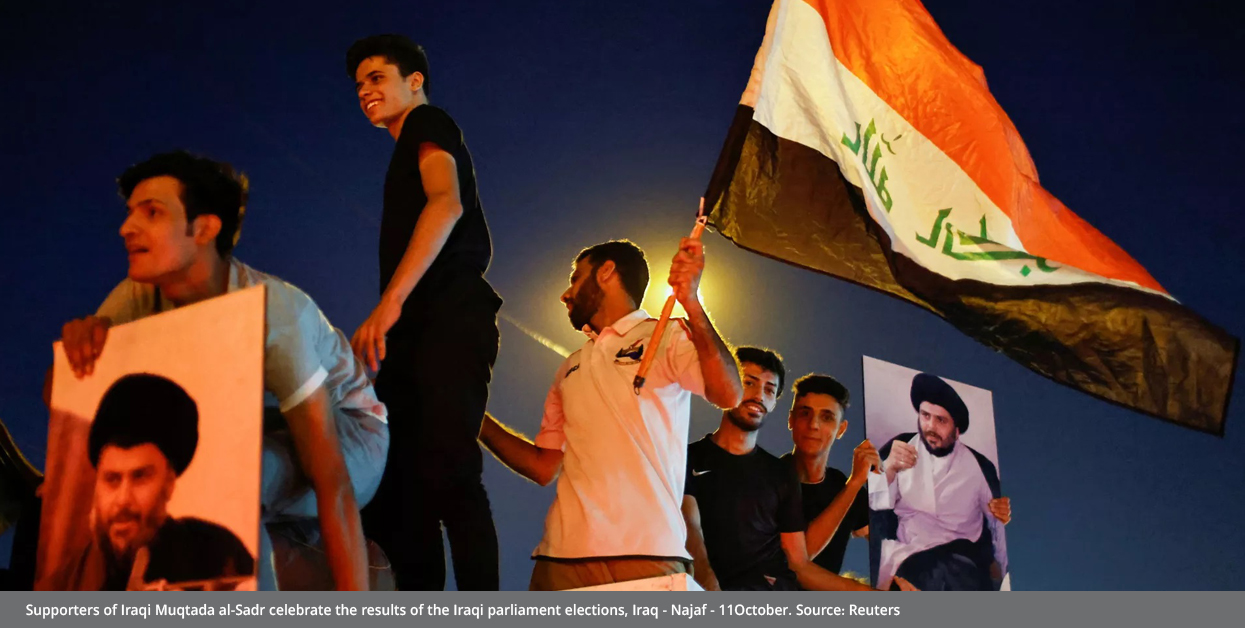
It can be concluded that the Sadrist movement seeks to achieve its goals and ambitions through protest action, and a legal approval made it possible for it to criminalize normalization with Israel. It was enabled to achieve this by the 2 laws: criminalizing normalization with Israel which was approved without waiting for the formation of the government, and the emergency food security law, which provides food and salaries to the government until the completion of the current year, so the decision to resign was after 2 days of the adoption of the second law, from achieving this, and through the following:
1. Adoption of the Emergency Support Law for Food Security and Development: it is supposed to address any possible interruption in the political path as a result of the protests, and avoid the impact of this on the economic situation, because the law will provide the government with the funds necessary to manage state affairs, whose expenditures were set at 25 trillion Iraqi dinars ( About $17 billion), despite all the circumstances that accompanied it, starting with the challenge by the Federal Court as well as questioning it by other political parties who considered it a new door to corruption.
2. Adoption of a law criminalizing normalization: it blocks the way for Al-Sadr’s opponents to attach accusations and pretexts to the protests that it seems to be preparing.
Facing the risks of failing to form the government (recommendations)
Resolving the crisis of government formation in Iraq, and the following repercussions of the resignation of the Sadrist MPs, requires moving forward with a number of measures that would mitigate its possible scenarios, including:
1. The delay in forming the government until reaching a new agreement with the Sadrists guarantees their neutral stance regarding the upcoming government projects.
2. A pledge, according to a political agreement with the Sadrist movement, to give any formed government the opportunity for a period of no less than one year, after which its achievements and failures will be measured.
3. Working to grant an independent body in the House of Representatives the right to form a government, although this has its downsides, but it comes within the efforts to reduce the political tension imposed by the resignation of the Sadrist deputies.
4. Among the tasks that must be agreed upon, is for the formed government to prepare for early parliamentary elections, in which everyone can participate, and with an electoral law satisfactory to them.
Even if the above- mentioned solutions do not represent a progressive turn towards reforming political action, they are capable of mitigating the complications that may occur in the future as a result of the withdrawal of the Sadrists, as failure to deal with them seriously threatens to expose political action to sever risks. The coordination framework seems to have understood this clearly after declaring that the vacuum of the Sadrists in political action could not be filled without their presence.
The opinions expressed in this study are those of the author. Strategiecs shall bear no responsibility for the views and/or opinion of its author on security, economic, social, and other issues, as they do not necessarily represent the views of the Think Tank.
Keep in touch
In-depth analyses delivered weekly.
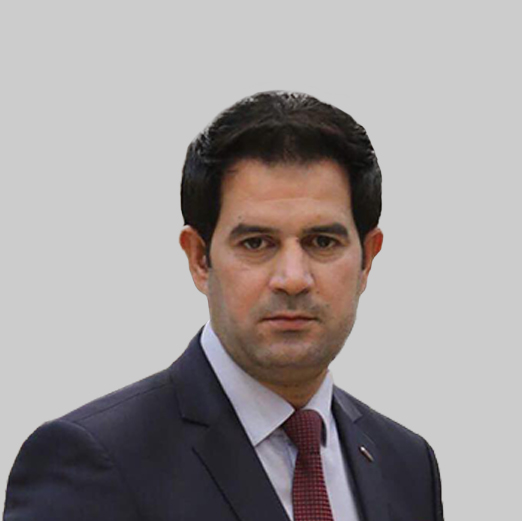
Related Analyses:







